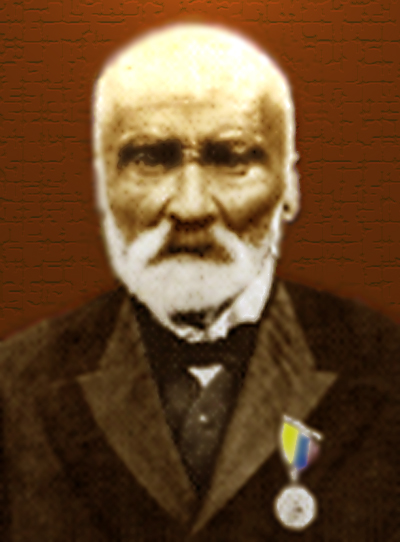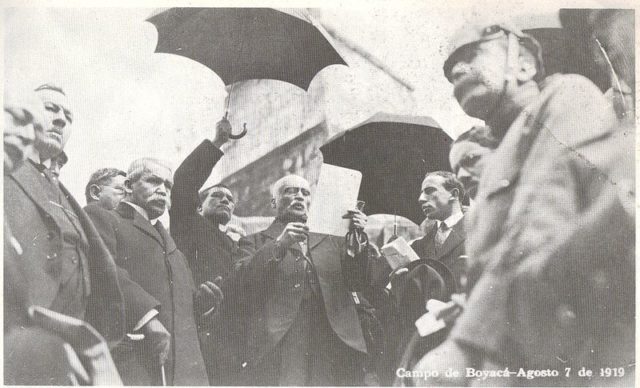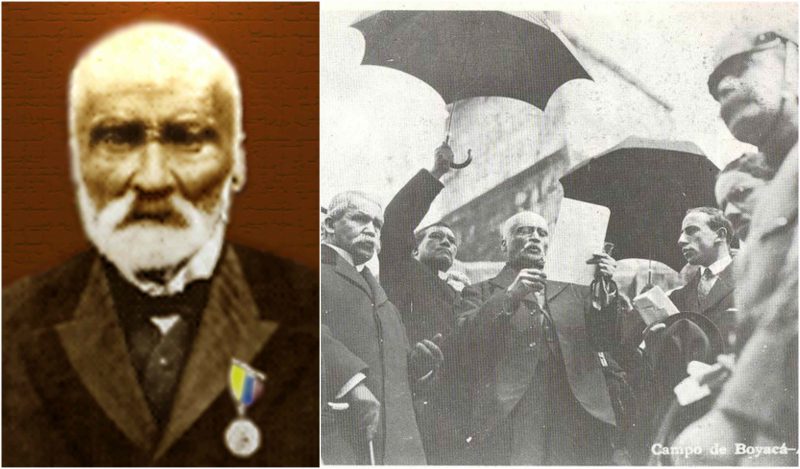Marco Fidel Suárez was a Colombian political figure. He served as president of Colombia from 1918 to 1921. He came from a very poor background, born in a two-room hut in Hatoviejo, today the town of Bello, Antioquia, adjacent to Medellín in the highland department of Antioquia. An illegitimate child at a time when official records always distinguished between “natural children” and “legitimate children” (and the former status was a disadvantage for life), his mother was a laundress; his wealthy father refused to recognize him or provide for him in any way.
Since his mother was unable to pay for him to attend the local elementary public school, he stood at a window of the school in an effort to observe the lessons. After a time he began to yell out answers to the teacher’s questions when the other pupils couldn’t answer. Eventually, the teacher, suitably impressed, invited him to attend class without having to pay. Later on, he joined a Catholic seminary but did not attain the priesthood as the seminary was closed. He then transferred to the Seminario Mayor de Medellín, where he studied philosophy, literature and theology for the priesthood. He stopped short of being ordained.

In the 1870s he participated in the civil conflict that took place in Antioquia, fighting on the side of Colonel Braulio Jaramillo, attaining a battlefield promotion to Lieutenant. Suárez became a very well known and distinguished philologist, philosopher, poet, writer, and teacher. Marco Fidel, along with Rufino José Cuervo and Miguel Antonio Caro, is considered one of the most important and influential scholars of the Spanish grammar in Colombia. His best literary work was “Los Sueños de Luciano Pulgar” (1926).
As president, Suárez implemented the “North Star” policy, which linked the foreign policy of Colombia with that of the United States of America. He was harassed by conservative opponents, mainly Laureano Gómez, who politicized his illegitimate birth, and attempted to depict him as a corrupt politician. In his defense, the Secretary of State Antonio Gómez Restrepo proclaimed: “You will always be the legitimate President of Colombia”; while Suárez responded: “Sir: I am a child of love, it is true. You are a child of obligation.”

He oversaw income tax legislation in 1918. Later, in 1919, the nation was interconnected by an advance system of wireless telegraphy.
Suárez was very fond of aviation. In 1919 he sanctioned Law 126 by which commercial aviation was established and authorized, allowing for international travel and the operation of the postal service. A year later he brought to the country a French mission to establish and train the Colombian Air Force.
In 1881, Suárez won the award of best Colombian writer by the “Academia Colombiana de la Lengua”. His literary work had been to honor the centennial birth of Don Andrés Bello. In recognition of his work, the town of Hatoviejo changed its name to Bello, Antioquia.
The hut where he was born and lived as a child is preserved as a museum in the town of Bello, Antioquia.
